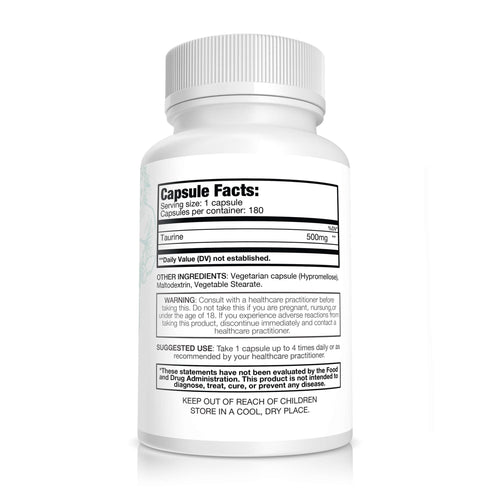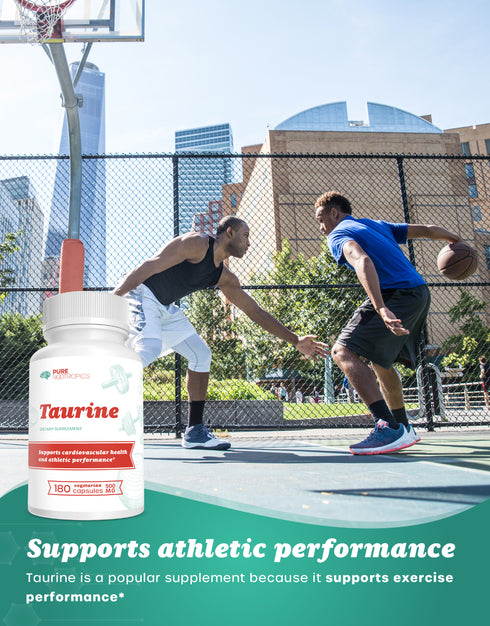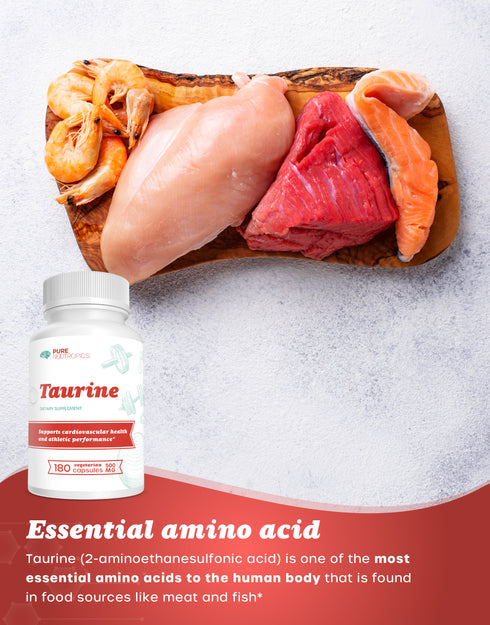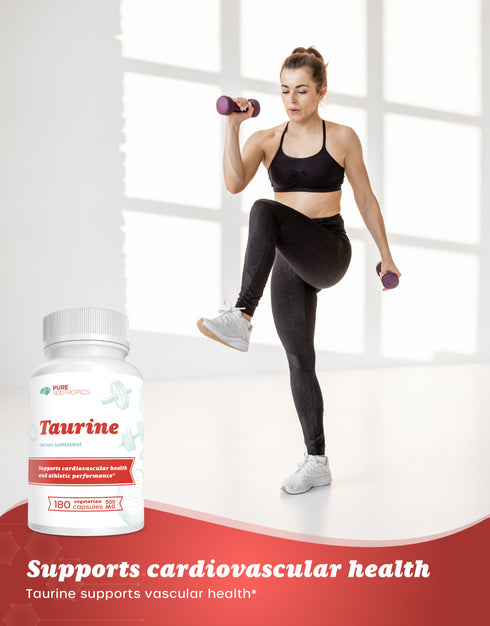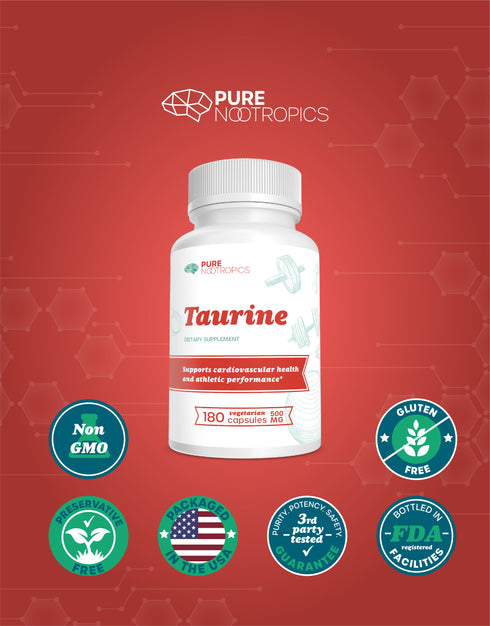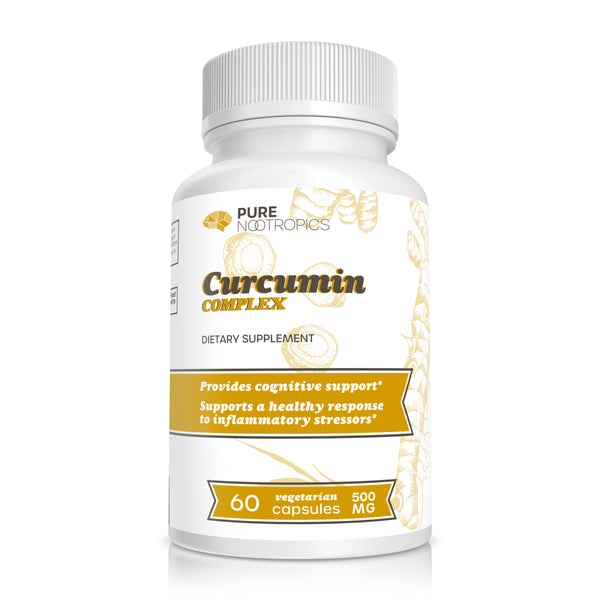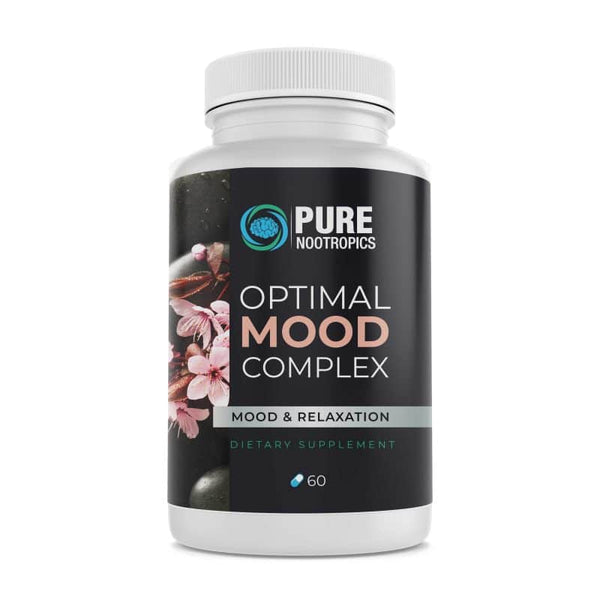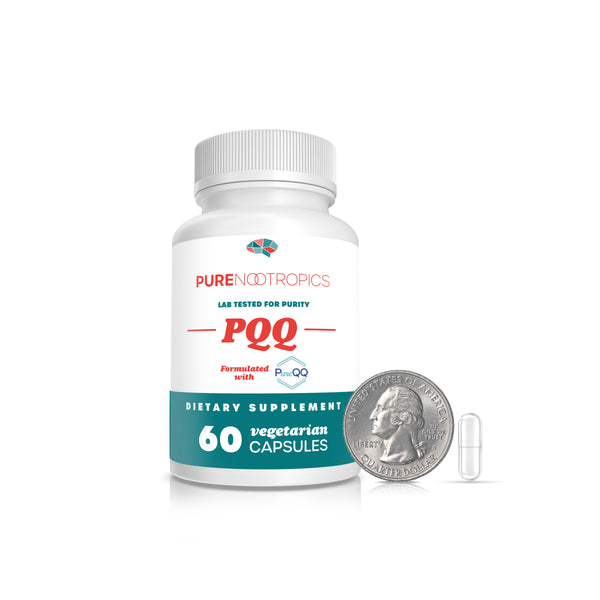Taurine is an essential amino acid that occurs naturally in the human body and is abundant in the brain, muscle tissue, retina, and organs in the body (1). It can also be found in dietary sources such as meat and fish (2).
Taurine Benefits
Taurine Mode of Action
Taurine (2-aminoethanesulfonic acid) is one of the most essential amino acids in the body. Small amounts of taurine can be synthesized in the liver from cysteine and methionine (4). It is an organic osmolyte and regulates cell volumes. Taurine is involved in the central nervous system development and cell protection, as well as being critical for the retina of the eye.
Taurine is considered “conditionally essential” because humans can synthesize it and are not entirely dependent on outside sources from which to obtain it (6). The mechanisms behind Taurine are not fully understood, despite the knowledge that it is so essential (1).
Humans obtain most of the taurine from their diet. Taurine can be found in small amounts of dairy, with the highest amount of taurine in shellfish, dark meat of chicken and turkey, and turkey bologna. Vegetarians and vegans have a lower blood level of taurine than meat-eaters (4).
A deficiency in taurine can be serious and affect the cardiovascular, renal, and ocular system (1).
Taurine, being a substrate in bile salt formation, was originally discovered in ox bile and was named after Taurus, the bull (3). It is not derived from bulls or bull testicles, contrary to circulating misinformation. Many people continue to spread the misinformation that since Red Bull energy drinks contain taurine and it is named “Red Bull” that it confirms this myth. This is incorrect: it is simply an ode to its discovery.
Taurine Dosage
Pure Nootropics' Taurine contains 500 mg per capsule. Suggested use is 1 capsule by mouth up to 4 times daily or as directed by a healthcare practitioner.
For further information, please see our References Tab above.
The references below are not meant to imply that any of our products treat, cure, or diagnose any disease or human condition. References to clinical studies and pre-clinical studies may use varying dosages and may not represent the dosages or subsequent results of products we sell; however, the references provided are pertinent to the subject supplement itself. References provided are intended for research and informational purposes only and do not represent the entire body of knowledge available on the subject(s) referenced; nor do they represent all possible outcomes associated with the subject(s) referenced including, but not limited to, adverse effects, precautions, or chemical interactions within the human body. The Content provided on this website is not intended to be a replacement for professional medical advice, treatment or diagnosis. Never ignore the advice of a medical professional or delay in attaining professional advice because of information or impressions you gather on this website. Choosing to rely on any information provided by the Content of this website is solely at your own risk. We encourage our audience to do their own research beyond the resources we have provided so your decision is as educated as possible.
• Supports athletic performance*
Balshaw, TG, et al. “The Effect of Acute Taurine Ingestion on 3-Km Running Performance in Trained Middle-Distance Runners.” Amino Acids, vol. 44, no. 2, Feb. 2013, pp. 555–561., doi:10.1007/s00726-012-1372-1.
• Supports cardiovascular health*
Fujita, T, et al. “Effects of Increased Adrenomedullary Activity and Taurine in Young Patients with Borderline Hypertension.” Circulation, vol. 75, no. 3, Mar. 1987, pp. 525–32., www.ncbi.nlm.nih.gov/pubmed/3815764/.
1. Ripps, Harris, and Wen Shen. “Review: taurine: a “very essential” amino acid.” Molecular vision vol. 18 (): 2673-86. https://www.ncbi.nlm.nih.gov/pmc/articles/PMC3501277/.
2. “Taurine.” Wikipedia, https://en.wikipedia.org/wiki/Taurine.
3. “Taurine.” Foods, Herbs & Supplements. https://naturalmedicines.therapeuticresearch.com/databases/food,-herbs-supplements/professional.aspx?productid=1024.
4. Wójcik, Oktawia P et al. “The potential protective effects of taurine on coronary heart disease.” Atherosclerosis vol. 208,1 (2010): 19-25. doi:10.1016/j.atherosclerosis.2009.06.002
5. Ahmadian, M, et al. “Taurine Supplementation Improves Functional Capacity, Myocardial Oxygen Consumption, and Electrical Activity…” J Diet Suppl, vol. 14, no. 4, 4 July 2017, pp. 422–432., doi:10.1080/19390211.2016.1267059.
6. “Taurine”. Examine.com, published Mar 10, 2014. Last updated Jun 14, 2018. https://examine.com/supplements/taurine/.
7. Mohammadreza Ghandforoush-Sattari, Siminozar Mashayekhi, Channarayapatna V. Krishna, John P. Thompson, and Philipp A. Routledge, “Pharmacokinetics of Oral Taurine in Healthy Volunteers,” Journal of Amino Acids, vol. 2010, Article ID 346237, 5 pages, 2010. https://doi.org/10.4061/2010/346237.




